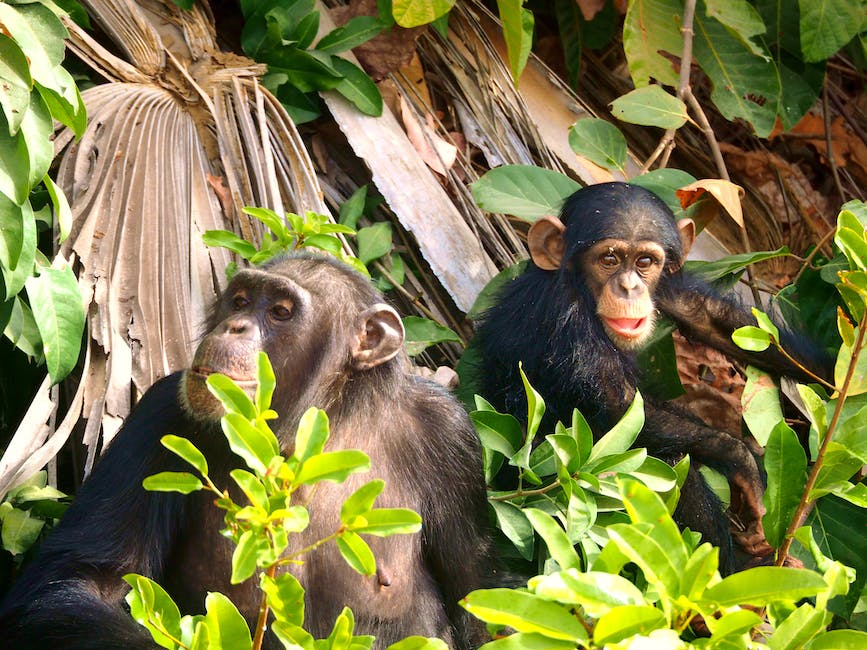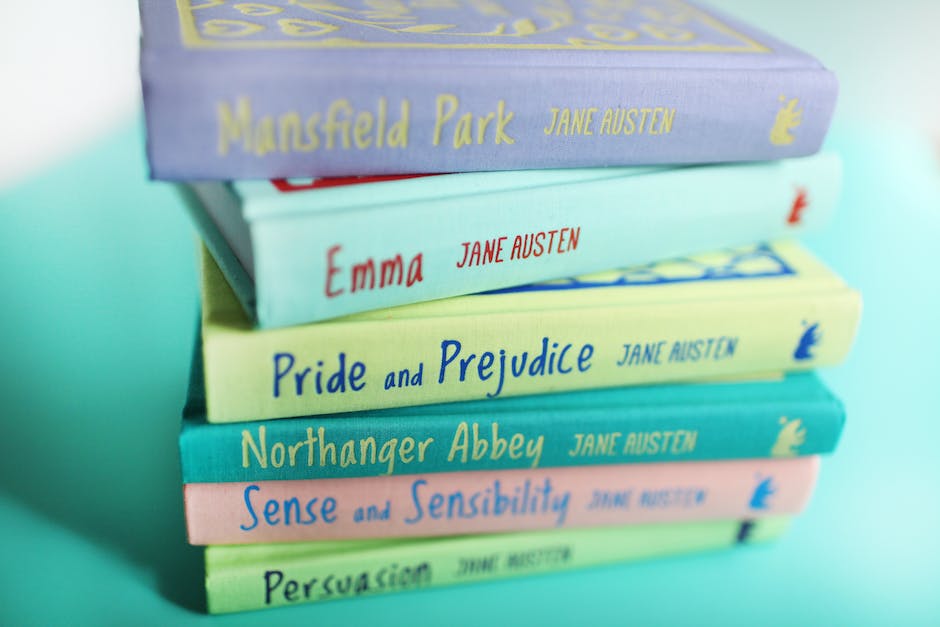Table of Contents
Unleashing the Power of Curiosity: Jane Goodall’s Extraordinary Journey with Chimpanzees
Introduction
“The Unstoppable Scientist: The Tale of Jane Goodall and Her Love for Chimpanzees” is a captivating story that delves into the life and work of renowned primatologist Jane Goodall. This inspiring tale highlights Goodall’s unwavering passion for chimpanzees and her groundbreaking contributions to the field of primatology. Through her tireless efforts, Goodall has not only revolutionized our understanding of chimpanzee behavior but has also become a prominent advocate for wildlife conservation. This book serves as a testament to Goodall’s remarkable journey and her enduring love for these incredible creatures.
The Early Life and Influences of Jane Goodall

The early life and influences of Jane Goodall played a crucial role in shaping her into the unstoppable scientist she is today. Born on April 3, 1934, in London, England, Goodall’s passion for animals was evident from a young age. Growing up, she spent countless hours observing and interacting with the wildlife in her backyard, fostering a deep connection with nature that would guide her future endeavors.
Goodall’s love for animals was nurtured by her supportive family. Her mother, Vanne, encouraged her curiosity and provided her with books about animals, fostering a love for learning and exploration. Goodall’s father, Mortimer, was a businessman who instilled in her a strong work ethic and determination. These early influences laid the foundation for her future success.
At the age of 18, Goodall embarked on a journey that would forever change her life. She was offered the opportunity to work as a secretary for a friend of her mother’s, who happened to be the famous anthropologist and paleontologist, Louis Leakey. This encounter would prove to be a turning point in Goodall’s life, as Leakey recognized her passion for animals and saw her potential as a scientist.
Under Leakey’s mentorship, Goodall’s scientific career began to take shape. He believed that Goodall’s lack of formal scientific training would be an advantage, as it would allow her to approach her research with fresh eyes and an open mind. Leakey saw in Goodall the potential to revolutionize the field of primatology, and he was determined to support her every step of the way.
In 1960, Leakey sent Goodall to Gombe Stream National Park in Tanzania to study chimpanzees. This groundbreaking research would become the foundation of her life’s work. Goodall immersed herself in the lives of the chimpanzees, spending hours observing their behavior and documenting their social interactions. She quickly realized that chimpanzees were not so different from humans, exhibiting complex emotions and social structures.
Goodall’s groundbreaking discoveries challenged the prevailing scientific beliefs of the time. She observed chimpanzees using tools, a behavior previously thought to be unique to humans. This discovery shattered the notion that humans were the only species capable of such advanced cognitive abilities. Goodall’s research paved the way for a new understanding of our closest relatives in the animal kingdom.
Throughout her career, Goodall faced numerous challenges and obstacles. She encountered skepticism from the scientific community, who questioned her methods and findings. However, her unwavering dedication and meticulous research eventually won over even the harshest critics. Goodall’s work not only revolutionized the field of primatology but also inspired a new generation of scientists to pursue their passions fearlessly.
Today, at the age of 87, Goodall continues to be a tireless advocate for animal welfare and environmental conservation. She founded the Jane Goodall Institute, which focuses on wildlife research, conservation, and community development. Goodall’s work has earned her numerous accolades and awards, including being named a United Nations Messenger of Peace.
The early life and influences of Jane Goodall shaped her into the unstoppable scientist she is today. From her childhood fascination with animals to her mentorship under Louis Leakey, Goodall’s journey has been one of passion, determination, and groundbreaking discoveries. Her love for chimpanzees and her unwavering dedication to their study have forever changed our understanding of the natural world. Goodall’s story serves as an inspiration to all those who dare to follow their dreams and make a difference in the world.
Jane Goodall’s Groundbreaking Research on Chimpanzees
Jane Goodall’s groundbreaking research on chimpanzees has revolutionized our understanding of these fascinating creatures. Her tireless dedication and love for chimpanzees have made her an unstoppable force in the field of primatology.
Goodall’s journey began in 1960 when she first set foot in Gombe Stream National Park in Tanzania. Armed with nothing but her passion and determination, she embarked on a mission to study the behavior of wild chimpanzees. At the time, very little was known about these animals, and Goodall’s research would prove to be a turning point in our understanding of their social structure and behavior.
One of the most significant contributions of Goodall’s research was her discovery that chimpanzees are capable of using tools. Prior to her groundbreaking observations, it was believed that tool use was a uniquely human trait. Goodall observed chimpanzees fashioning and using sticks to extract termites from their mounds, a behavior that had never been documented before. This discovery shattered the long-held belief that humans were the only species capable of using tools, and it opened up new avenues of research into the cognitive abilities of non-human animals.
Goodall’s research also shed light on the complex social dynamics of chimpanzee communities. She observed that chimpanzees form tight-knit social groups led by an alpha male. These groups engage in a variety of behaviors, including hunting, grooming, and territorial disputes. Goodall’s observations challenged the prevailing notion that humans were the only species capable of complex social interactions. Her research showed that chimpanzees, like humans, have intricate social structures and engage in complex social behaviors.
In addition to her groundbreaking research, Goodall’s work has also had a profound impact on conservation efforts. Through her studies, she highlighted the threats faced by chimpanzees due to habitat loss and poaching. Her research brought attention to the urgent need to protect these endangered animals and their habitats. Goodall’s advocacy work has led to the establishment of numerous conservation initiatives aimed at preserving chimpanzee populations and their ecosystems.
Goodall’s love for chimpanzees is evident in her tireless efforts to protect and conserve them. She has dedicated her life to raising awareness about the importance of preserving these incredible creatures and their habitats. Through her Jane Goodall Institute, she continues to work towards creating a better future for chimpanzees and inspiring the next generation of conservationists.
Goodall’s groundbreaking research on chimpanzees has not only expanded our knowledge of these animals but has also challenged our understanding of what it means to be human. Her observations have shown us that chimpanzees share many similarities with us, both in terms of their behavior and social structures. This has profound implications for our understanding of our own evolutionary history and our relationship with the natural world.
In conclusion, Jane Goodall’s groundbreaking research on chimpanzees has had a profound impact on our understanding of these incredible creatures. Her observations have challenged long-held beliefs and opened up new avenues of research into the cognitive abilities and social dynamics of non-human animals. Goodall’s love for chimpanzees and her tireless dedication to their conservation have made her an unstoppable force in the field of primatology. Her work serves as an inspiration to us all, reminding us of the importance of protecting and preserving the natural world.
The Impact of Jane Goodall’s Work on Conservation Efforts
The Impact of Jane Goodall’s Work on Conservation Efforts
Jane Goodall, a renowned scientist and conservationist, has dedicated her life to studying and protecting chimpanzees. Her groundbreaking research and tireless efforts have had a profound impact on conservation efforts around the world. Through her work, Goodall has not only increased our understanding of these incredible creatures but also inspired a new generation of conservationists.
One of the most significant contributions of Goodall’s work is her discovery of the complex social structures and behaviors of chimpanzees. In the 1960s, she began her groundbreaking research in Gombe Stream National Park in Tanzania. Through her meticulous observations, Goodall revealed that chimpanzees have distinct personalities, form strong family bonds, and engage in complex social interactions. This groundbreaking research challenged the prevailing belief that humans were the only species capable of such behaviors.
Goodall’s findings have had a profound impact on our understanding of the natural world. By highlighting the similarities between humans and chimpanzees, she has helped foster a greater sense of empathy and connection with these animals. This newfound understanding has led to increased efforts to protect chimpanzees and their habitats.
In addition to her scientific contributions, Goodall has been a tireless advocate for conservation. She has worked tirelessly to raise awareness about the threats facing chimpanzees and their habitats. Through her organization, the Jane Goodall Institute, she has implemented numerous conservation programs aimed at protecting chimpanzees and promoting sustainable practices.
One of the most successful initiatives of the Jane Goodall Institute is the Roots & Shoots program. This program empowers young people to take action in their communities and make a positive impact on the environment. By engaging young minds and instilling a sense of responsibility, Goodall has created a global network of passionate individuals dedicated to conservation.
Goodall’s work has also had a significant impact on policy and legislation. Her research and advocacy efforts have helped shape international agreements and laws aimed at protecting chimpanzees and their habitats. Through her influence, she has been able to secure protected areas for chimpanzees and advocate for stricter regulations on the illegal wildlife trade.
Furthermore, Goodall’s work has inspired countless individuals to pursue careers in conservation. Her passion and dedication have served as a beacon of hope for those who strive to make a difference in the world. Many young scientists and conservationists credit Goodall as their inspiration and role model, furthering her impact on conservation efforts.
In conclusion, Jane Goodall’s work has had a profound impact on conservation efforts. Through her groundbreaking research, she has increased our understanding of chimpanzees and their complex social behaviors. Her advocacy and conservation programs have empowered individuals around the world to take action and protect these incredible creatures. Goodall’s influence extends beyond her scientific contributions, as she has inspired a new generation of conservationists. Her unwavering dedication and love for chimpanzees have made her an unstoppable force in the world of conservation.
Jane Goodall’s Legacy and Continued Advocacy for Wildlife Protection
Jane Goodall’s legacy as a scientist and advocate for wildlife protection is truly remarkable. Her love for chimpanzees and dedication to their study has not only revolutionized our understanding of these incredible creatures but has also inspired countless individuals to take action and protect the natural world.
After spending several years studying chimpanzees in the wild, Goodall realized the urgent need for conservation efforts. She witnessed firsthand the destruction of their habitats and the devastating impact of human activities on their populations. This realization fueled her determination to not only study chimpanzees but also to raise awareness about the importance of protecting their habitats and the biodiversity of our planet.
Goodall’s advocacy work began in the 1980s when she established the Jane Goodall Institute (JGI). The organization’s mission is to empower individuals to make a positive difference for all living things through education, research, and conservation. Through the JGI, Goodall has been able to reach millions of people around the world, inspiring them to take action and become stewards of the environment.
One of the key initiatives of the JGI is the Roots & Shoots program. This program empowers young people to become active participants in conservation efforts. By providing them with the tools and resources they need, Goodall believes that young people can make a significant impact on the future of our planet. Through Roots & Shoots, students have been involved in various projects, such as reforestation, wildlife conservation, and sustainable agriculture, all aimed at creating a more sustainable and compassionate world.
In addition to her work with the JGI, Goodall has been a vocal advocate for animal welfare and environmental issues. She has spoken at numerous conferences and events, sharing her knowledge and experiences to inspire others to take action. Goodall’s ability to connect with people on an emotional level has made her a powerful force in the fight for wildlife protection.
Goodall’s impact extends beyond her advocacy work. Her scientific contributions have been groundbreaking, challenging long-held beliefs about the intelligence and social behavior of chimpanzees. Through her meticulous observations, she discovered that chimpanzees have complex social structures, use tools, and have the ability to communicate and learn from one another. These findings have not only deepened our understanding of chimpanzees but have also shed light on the importance of protecting their habitats to ensure their survival.
Despite her many achievements, Goodall remains humble and committed to her cause. She continues to travel the world, speaking out against deforestation, illegal wildlife trade, and other threats to our planet’s biodiversity. Her tireless efforts have earned her numerous awards and accolades, including being named a United Nations Messenger of Peace.
Jane Goodall’s legacy as a scientist and advocate for wildlife protection is a testament to the power of passion and determination. Her love for chimpanzees and her unwavering commitment to their conservation have inspired generations of individuals to take action and protect our planet’s precious biodiversity. As we face increasing environmental challenges, Goodall’s work serves as a reminder that each of us has the power to make a difference and create a more sustainable and compassionate world for all living things.
Q&A
1. Who is the author of “The Unstoppable Scientist: The Tale of Jane Goodall and Her Love for Chimpanzees”?
Anita Silvey.
2. What is the book “The Unstoppable Scientist: The Tale of Jane Goodall and Her Love for Chimpanzees” about?
It tells the story of Jane Goodall and her passion for studying chimpanzees in their natural habitat.
3. Is “The Unstoppable Scientist: The Tale of Jane Goodall and Her Love for Chimpanzees” a children’s book?
Yes, it is a children’s book aimed at introducing young readers to the life and work of Jane Goodall.
4. What is the main message or theme of “The Unstoppable Scientist: The Tale of Jane Goodall and Her Love for Chimpanzees”?
The book highlights the importance of following one’s passion, making a difference, and the power of perseverance and determination.
Conclusion
In conclusion, “The Unstoppable Scientist: The Tale of Jane Goodall and Her Love for Chimpanzees” is a captivating story that highlights Jane Goodall’s unwavering dedication and passion for studying chimpanzees. Through her groundbreaking research and conservation efforts, Goodall has made significant contributions to our understanding of these remarkable creatures and the importance of protecting their habitats. Her story serves as an inspiration to future generations of scientists and environmentalists.





